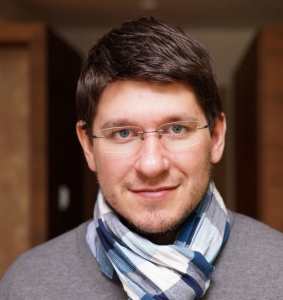FROG Deep Dive Panel
Are games especially suited to teach economic thinking and financial literacy (to children and youths, but also to adults), and why? Is the systemic character of games comparable to that of economic systems, or are there crucial differences? Are there examples of games being used as tools of economic critique, and what are the potentials and limitations of doing so? These and other questions will be explored by practitioners and academics at the FROG “Deep Dive Panel” on October 13, 2023.
Panelists
Karina Kaiser-Fallent

Karina Kaiser-Fallent (*1982), mother of a 6 year old boy, psychologist, studied psychology at the University of Vienna, working at the Department of Youth in the Federal Chancellery of Austria, Head of „BuPP – Information of Digital Games“ (www.bupp.at): assessing digital games and publishing game recommendations for children since 2005, offering workshops and articles for parents, teachers, teenagers and children concerning media use and potentials of digital games.
Sonja Gabriel

Sonja Gabriel works as a professor for media literacy at University Teacher College Vienna/Krems (Austria). Her primary focus of research is on digital game-based learning and using serious games and gamification for teaching different subjects at school and university as well as evaluation of various projects for learning with games and game-design approaches. Another focus of her research is on digital media literacy.
Theresa Graf

Theresa Graf studied business education at the Vienna University of Economics and Business Administration. During her master’s program, she already focused on financial education. For several years, she has been responsible for the design and development of various financial education projects at Three Coins. The primary focus of these formats is to teach how to handle money well in an effective and target group-oriented way. Her projects include the development of gamified educational formats and digital learning platforms.
Jörg Hofstätter

Jörg Hofstätter studied Architecture and Industrial Design, considers himself a Edupreneur and Chocolate addict with a passion for plaful learning and Games with a purpose. He wrote various publications on “Architecture & Virtual spaces”, “Games with a purpose” and “Playful learning”.
Currently, he is involved in various European research projects on playful learning and game technologies.
Jörg does not post images of his three sons on Social Media.
Moderation
Laura Peter

Laura Peter is an Austrian host, interviewer & speaker for public events, online streaming as well as TV productions – specialised in but not solely focussed on gaming & esports.
With her Master’s degree in Digital Media Technologies and over 10 years of experience in the Digital Marketing sector, she forged a link between her two passions, marketing and gaming, in 2018.
Since then, she is actively involved in the Austrian esports scene – be it as a host for several grand esports events, including Austria’s biggest esports league, or as co-founder of the first Austrian Esports School League.













